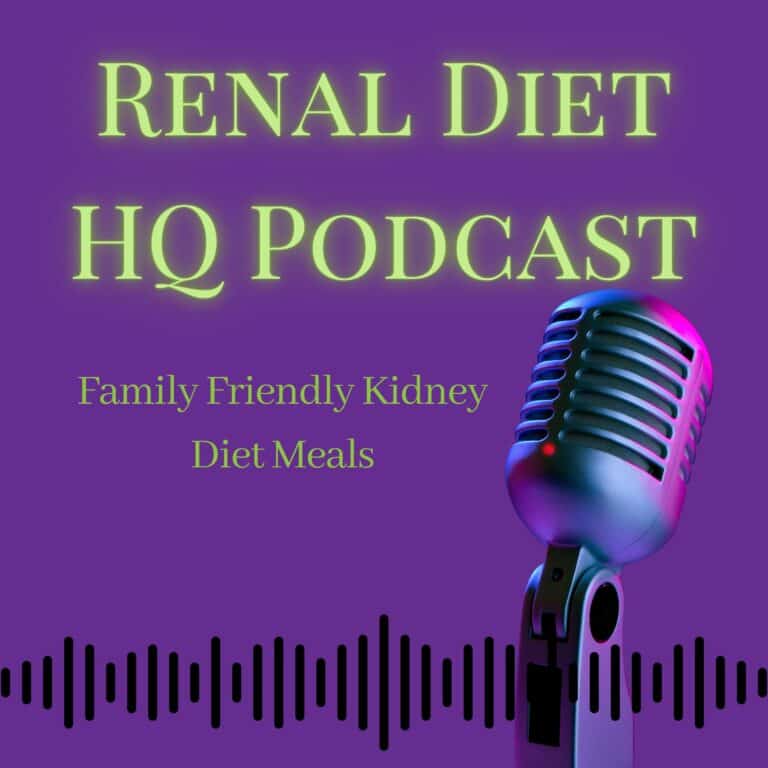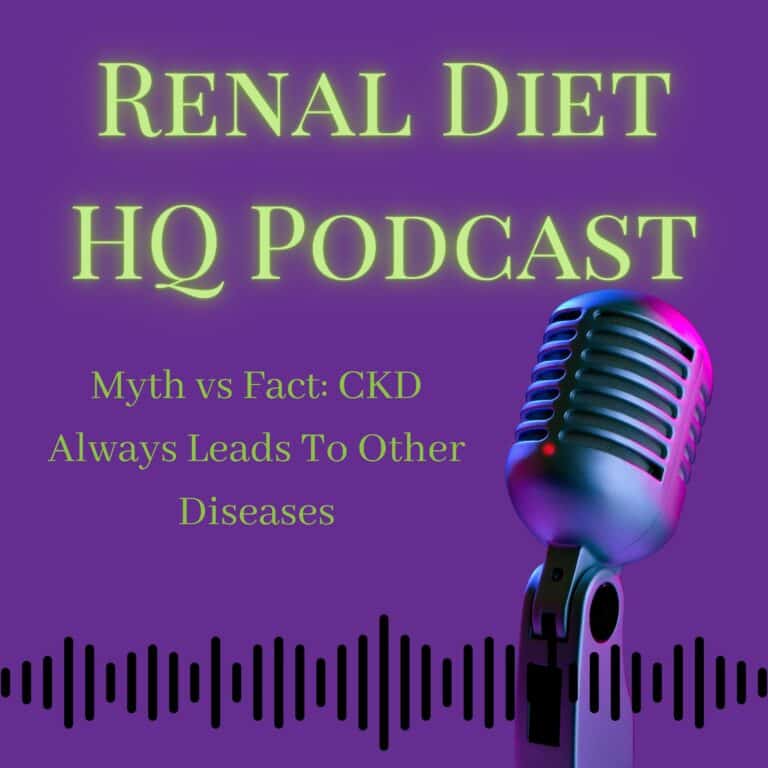Can you Eat Broccoli On a Renal Diet?-Podcast
Podcast: Play in new window | Download

If you’re on a renal diet, you know how crucial it is to make mindful food choices. Managing kidney health through diet can significantly affect your overall well-being. One common question that arises for individuals with Chronic Kidney Disease (CKD) is: can you eat broccoli on a renal diet?
For More Recipes and Ideas --->> Get Your Free Meals and Recipes That Are Perfect for Pre-Dialysis Diets, Pre-Dialysis with Diabetes, or Dialysis Diets.
We’ll explore whether broccoli is a safe and nutritious option for people with CKD. Plus, we’ll dive into how it can be beneficial when incorporated properly into your kidney-friendly diet.
Why Broccoli is a Nutritious Choice for CKD Patients
Broccoli is often hailed as a nutritional powerhouse—and for good reason. It’s packed with essential vitamins such as A, C, K, B2, and B6, as well as important minerals like manganese and potassium. For individuals with CKD, adding broccoli to your diet can offer multiple health benefits.
The high fiber content of broccoli aids digestion and helps prevent constipation, which is particularly beneficial for CKD patients who may face digestive issues. Broccoli’s antioxidants and anti-inflammatory properties can also support overall health by reducing inflammation—an important consideration for those managing kidney disease.
Broccoli’s Low Phosphorus Content: A Safe Choice for CKD
Phosphorus management is a key component of a renal diet. Many foods high in phosphorus can negatively impact kidney function. Fortunately, broccoli has a relatively low phosphorus content compared to other vegetables, making it a safe option for individuals with CKD.
Broccoli can help you manage your weight and improve digestive health thanks to its high fiber and low-calorie content. It’s a smart carb choice that not only satisfies hunger but also supports kidney health.
Blood Sugar and Immune Support: More Reasons to Eat Broccoli
For CKD patients who also have diabetes, managing blood sugar levels is crucial. Broccoli contains chromium, which helps stabilize blood glucose levels, making it a valuable food for those balancing diabetes and kidney disease.
Additionally, broccoli is rich in vitamin C, which boosts the immune system. Keeping your immune system strong is important for CKD patients, as it helps reduce additional strain on the kidneys and lowers the risk of infections.
Nutritional Content of Broccoli: A Super Veggie for CKD
Broccoli is rich in essential nutrients, including dietary fiber, vitamin C, vitamin K, folate, manganese, iron, and potassium. It also contains powerful phytochemicals like sulforaphane, which is linked to cancer prevention. Its antioxidant properties help protect cells from free radical damage, which is critical for maintaining overall health.
Low in calories—just 31 per cup—and a decent source of plant-based protein, broccoli is a great addition to a kidney-friendly diet. A half-cup serving provides nearly 70% of the recommended daily intake of vitamin C and offers 2.3 grams of fiber per cup, promoting good digestive health.
Broccoli and Potassium: Is It Safe for CKD?
One concern for CKD patients is potassium intake. Potassium-rich foods can be dangerous for those with advanced CKD, as high potassium levels can lead to complications. However, in moderation, broccoli’s potassium content—about 450 milligrams per cooked cup—still falls within the daily allowance for many CKD patients who are advised not to exceed 2,000 milligrams of potassium per day.
It’s important to note that those with more advanced stages of CKD should work with their healthcare provider to monitor potassium levels and adjust their diet accordingly.
Precautions for Broccoli Consumption on a Renal Diet
While broccoli is generally safe for CKD patients, it’s essential to consult your doctor or dietitian before making any dietary changes. CKD affects each person differently, and some foods, including broccoli, can pose risks depending on your individual health condition.
For instance, people with a history of kidney stones may need to limit their broccoli intake due to its oxalate content, which can increase the risk of stone formation. Always consult your healthcare provider to identify any potential risks based on your health profile.
How to Prepare Broccoli Safely on a Renal Diet
The way you prepare broccoli matters! To preserve its nutrients and avoid excess sodium, opt for cooking methods like boiling, steaming, or roasting with a small amount of olive oil. Avoid adding salt or salty seasonings that can raise blood pressure and strain your kidneys.
Using low-sodium herbs and spices can enhance flavor without compromising your kidney health. You can experiment with different seasonings to keep your meals delicious while ensuring they remain kidney-friendly.
Comparing Broccoli with Other Vegetables for a Renal Diet
While broccoli has a moderate phosphorus content, there are other vegetables, like cauliflower and spinach, that may offer fewer minerals, making them suitable alternatives for CKD patients who need to further restrict phosphorus intake.
Cauliflower, for instance, provides similar health benefits with fewer minerals, making it a great option for those looking for a substitute that supports kidney function and overall health.
Broccoli Can Be a Part of a Kidney-Friendly Diet
Broccoli offers a wealth of health benefits for individuals with CKD. Its low phosphorus content, fiber, antioxidants, and essential vitamins make it a valuable addition to a renal diet when consumed in moderation. However, it’s important to monitor potassium levels and consult with your healthcare provider to ensure broccoli fits within your specific dietary needs.
By preparing broccoli correctly and enjoying it in moderation, you can benefit from its nutritional value while supporting your kidney health.
Learn more about Grilled Foods For Chronic Kidney Disease
Learn more about Tips for making kidney-friendly Choices at Restaurant








